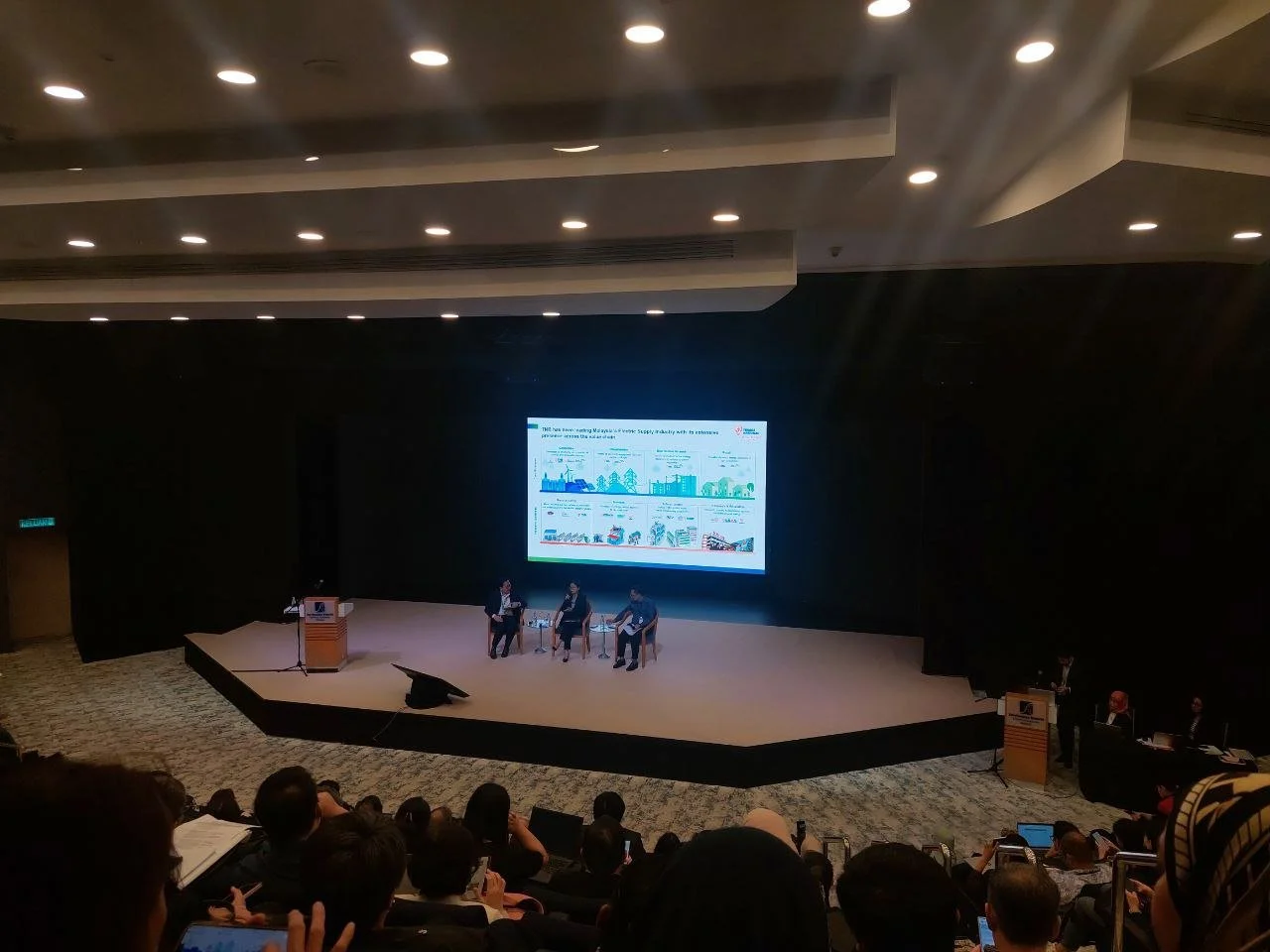Data to Disclosures (D2D) Forum 2025: Strengthening Malaysia’s Data Capacity for Sustainability Reporting
Kuala Lumpur, 17 October 2025 — The Data to Disclosures (D2D) Forum, hosted by the Securities Commission Malaysia (SC), brought together regulators, data custodians, and corporate sustainability leaders to address one of the most pressing challenges in Malaysia’s corporate transition — the availability and credibility of sustainability-related data.
The half-day forum, themed “Strengthening Data Capacity for NSRF Reporting Entities,” focused on enabling public-listed companies (PLCs) and value-chain partners to access actionable, decision-useful data aligned with the National Sustainability Reporting Framework (NSRF) and the International Sustainability Standards Board (ISSB) requirements.
Opening Address: Data as the Cornerstone of Credible Disclosures
In his keynote, Dato’ Mohammad Faiz Azmi, Executive Chairman of the Securities Commission Malaysia and Chair of the Advisory Committee on Sustainability Reporting (ACSR), underscored that credible reporting depends on credible data.
He noted that while 68% of sustainability-related data exists, only 33% is readily accessible — revealing a significant data gap, particularly in greenhouse-gas emissions, energy, and physical-risk indicators. Dato’ Faiz emphasized a “light-touch regulatory approach” in the early implementation years, encouraging companies to begin reporting with available data rather than delaying compliance.
Malaysia, he added, is already confronting increasing climate risks such as floods and rising temperatures, making adaptation and resilience planning imperative beyond companies’ own operational boundaries.
Session Highlights: From Data Access to Business Value
1. Aligning with Global Standards
Julian Hashim, Chief Regulatory Officer of Bursa Malaysia, introduced the National Sustainability Reporting Framework (NSRF) — Malaysia’s formal adoption of ISSB standards, making it the first ASEAN jurisdiction recognised by the IFRS Foundation for its limited-transition implementation.
The phased rollout begins in 2025, supported by Additional Transitional Reliefs (ATRs) that prioritise climate-first reporting and defer Scope 3 disclosures to ensure a manageable transition.
2. Leveraging National Climate Data
Dr. Mohammad Fikry Abdullah of NAHRIM introduced the Hydroclimate Data Analysis Accelerator (N-HyDAA) — Malaysia’s national climate-data portal containing more than 10 billion hydroclimate data points.
Covering Peninsular Malaysia, Sabah and Sarawak, the platform allows users to perform Climate Scenario Analysis (CSA) across a 6 km grid, projecting rainfall, drought, and flood risks up to 2099.
3. Understanding Climate Scenario Analysis
Farhana Jabir, Director of Sustainability & Climate Change at PwC Malaysia, explained a structured six-step CSA approach, from qualitative risk acknowledgment to financial impact quantification.
She stressed that CSA is not about predicting the future but about testing resilience — helping organisations evaluate how climate trajectories could influence revenue, capital expenditure, and long-term asset viability.
4. Digitalising Reporting through the Bursa CSI Platform
Wong Hui Yin, Acting Director of Data & Digital Services at Bursa CSI, demonstrated a unified national disclosure platform aligned with IFRS S1 and S2.
The platform’s Measure–Manage–Report modules integrate a carbon calculator (Scopes 1–3), supplier-engagement tools, and AI-assisted report generation, designed to streamline compliance while enhancing transparency.
5. Empowering SMEs through the SEDG GHG Calculator
Navina Balasingam of Capital Markets Malaysia and Tobias Mangelmann of Lasanju Consulting presented the Simplified ESG Disclosure Guide (SEDG) and its multilingual GHG Calculator, enabling SMEs to measure Scope 1 and 2 emissions easily using GHG Protocol and IPCC AR6 factors — ensuring value-chain data quality for PLCs’ Scope 3 reporting.
6. Turning Sustainability Data into Real Business Value
Moderated by Ong Khai Chiat (PwC Malaysia), the panel with Leo Pui Yong (Chief Sustainability Officer, TNB) and Masdi bin Abdul Karim (Director, SPAN) illustrated how digitisation and integrated datasets transform sustainability efforts into operational and financial performance gains.
TNB shared its Net Zero 2050 roadmap and 300-indicator digital dashboard, while SPAN announced its DIPAN SMi water-data integration platform, scheduled for completion by 2027.
Bridging Data to Disclosure through Verified Conservation Intelligence
The Forum underscored Malaysia’s need for credible, localised, and decision-useful datasets to underpin sustainability reporting.
This aligns closely with Planters International Berhad’s ongoing efforts to build data infrastructure through its Verified Conservation Intelligence (VCI) framework — a science-driven system that transforms real-world conservation metrics into reportable, verifiable sustainability data.
Through initiatives such as the Coastal Oasis Sungai Klang programme, Planters’ VCI ecosystem integrates satellite, LiDAR, IoT, and field-survey data to quantify carbon stock, plastic waste interception and removal, biodiversity richness, water quality, and physical-risk resilience.
These datasets provide corporates with geospatially verified, ISSB-aligned indicators that can strengthen disclosures for:
Scope 3 biogenic-carbon accounting
TNFD-compliant nature-risk reporting
Physical-risk and adaptation metrics under CSA frameworks
By bridging restoration science with disclosure standards, VCI offers corporations a trusted data partner — enabling them to turn verified conservation outcomes into measurable ESG value and meet the transparency demands outlined by the SC’s NSRF and upcoming Sustainability Assurance Framework.






















